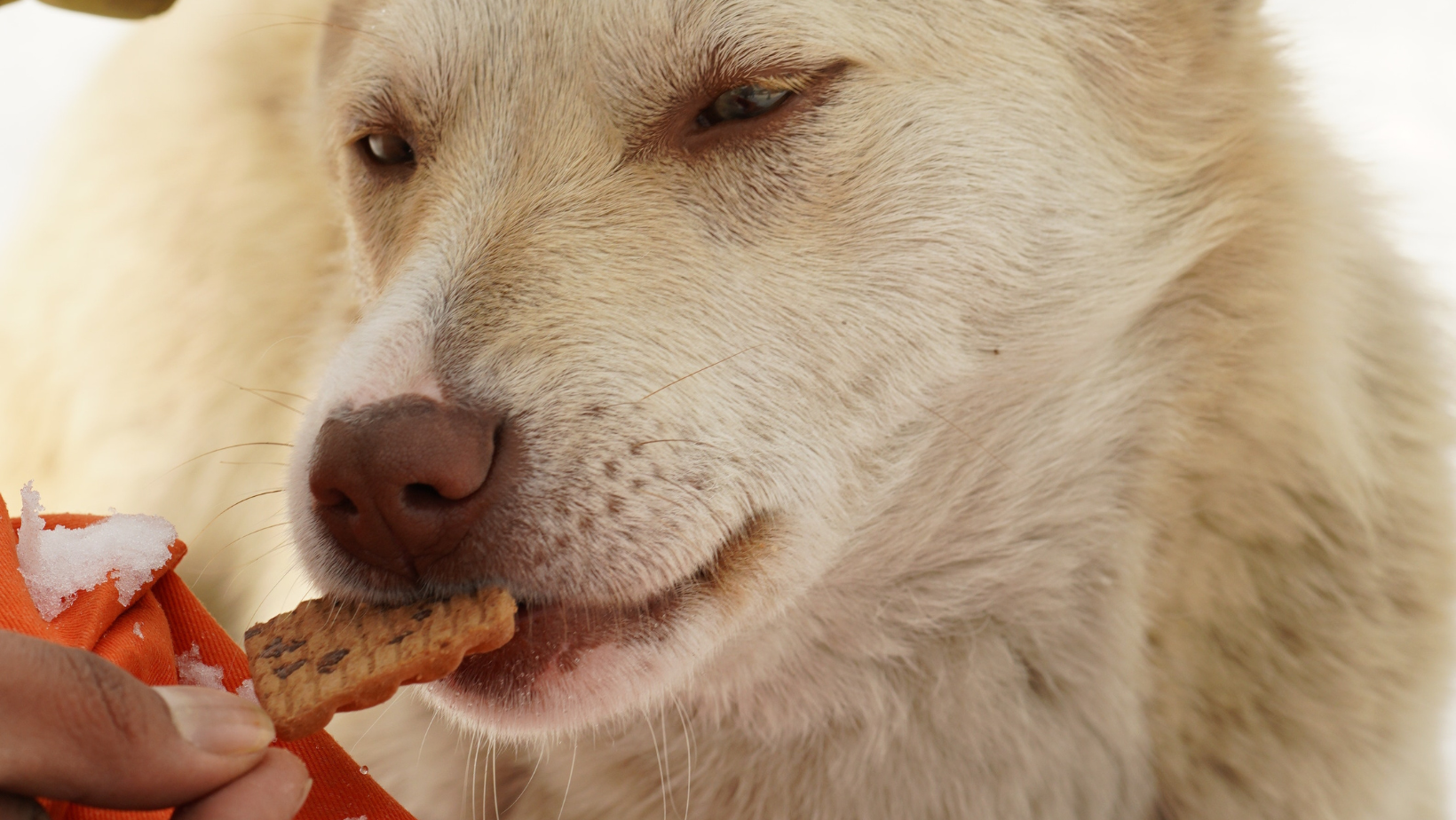Why Should We Avoid Feeding Sweets to Our Pets?

‘’ How many times has your dog smelled the location where you hide when you go out for ice cream at midnight?” In this Blog we will discuss Why Should We Avoid Feeding Sweets to Our Pets?
They enjoy everything, from the inherently sweet flavours of fruits to artificial sweeteners. Regardless of an animal’s ability to taste, sugar has been shown to tempt all of them. The pet community is at risk, and too much of it might be fatal! You did read that correctly! I am aware that it is unjust, but everything has a scientific basis. Let’s examine the sour-sweet reality of these items for our pets.
Let’s start out with a fun fact!
Did you know that, in compared to humans, who have 9000 taste buds, dogs only have about 1700 taste buds and cats only have 470?
Cats, who cannot even taste sweetness, adore the extra calories despite this. With cats, you can still get away with it, but with dogs, the negative consequences of sweets might manifest very immediately. Generally speaking, sweets do not add anything to each person’s body, adding to the negative calories. When a cat consumes sweets, the effects are less severe than they are for dogs, but the same is true for cats.
Naturally, there is no one to stop our furries in the wild. From sweetness to harshness, they are free to eat whatever they like. Since natural sweeteners like fruits are still familiar to their bodies, the issue arises when artificial sweeteners like sugar are introduced. For example:
Fruits naturally have sweetness, however chocolates have sweetness added to it to cover up the bitterness of the cocoa. Despite the fact that fruits are an excellent source of fibres that support many bodily processes in canines and felines. Due to the quantity of sweetness it has, one must still consume it in moderation. While refined sugar is a byproduct, refined sugar items like chocolates, ice cream, and sweets should be rigorously avoided. If you’ve ever been a little “diet conscious,” you’re aware of how bad sugar is for you.
A study from the Association of Pet Obesity Prevention found that 56% of dogs were overweight or obese in 2018. Dogs have a sweet craving just like humans do. Similar to how a shark finds it difficult to be seduced by other things after tasting blood, it is extremely difficult to wean a dog off such flavours after they have had those sweets since nothing can compare to the sweetness.
Be firm with your expectations of these limitations, and don’t show any emotion, since before you know it, those puppy eyes will entice you and you’ll be looking for weight-loss programmes for them.
With this clever ploy, many dog food manufacturers deceive the dog. In order to make the dog dependent on their products, they add sugar. Sugar disguises the flavour of low-quality food products, lowering the cost of the company’s raw materials but slowly killing the dog. A dog owner has problems switching out such a diet. It is therefore preferable that you develop ingredient knowledge early on.
Here are the reasons Why Should We Avoid Feeding Sweets to Our Pets:
UPSET STOMACH
 The fundamental function of the stomach is to break down the food that has been consumed by an organism. When an organism consumes a substance that is not optimum for them, an immediate response is vomiting and diarrhoea. Animals employ the bacteria and other microbes in their guts to digest the food they have consumed.
The fundamental function of the stomach is to break down the food that has been consumed by an organism. When an organism consumes a substance that is not optimum for them, an immediate response is vomiting and diarrhoea. Animals employ the bacteria and other microbes in their guts to digest the food they have consumed.
A sugar intake that is above the recommended level can upset the digestive system. Even when the body entirely rejects sweet products and throws them out in the form of violent and bloody vomiting or diarrhoea, the taste buds joyously welcome them.
TOXICITY
The two sugar derivatives that are most harmful to dogs are chocolate and xylitol.
 Chocolate includes theobromine, which your pet may find harmful. If consumed, dark, semi-sweet, and baker’s chocolate can be fatal. – Ari Zabell, DVM, DABVP, of Banfield Pet Hospital in Portland, Oregon.
Chocolate includes theobromine, which your pet may find harmful. If consumed, dark, semi-sweet, and baker’s chocolate can be fatal. – Ari Zabell, DVM, DABVP, of Banfield Pet Hospital in Portland, Oregon.
Intake of xylitol can incessantly lower the hypoglycemia level(low blood sugar) of a dog and can cause rapid kidney failure. Similar to how it is one of the most dangerous items for dogs, it can cause vomiting, nausea, and even death in cats. No amount of flavour could possibly excuse such tragic outcomes. It is therefore wise for a dog parent to resist giving in to those puppy eyes for this specific object. Even if they salivate over it, you must consider the wider picture and put their health first.
It is crucial to remember that foods like sugar-free gums or peanut butter, which are absolutely safe for you to eat as a person, can also contain these hazardous substances. Therefore, it is preferable to retain a tap on the substance.
CAVITIES
 This is not very novel information because humans also get cavities from eating too much sugar. But in the case of your pet, even a small amount might do serious injury. The bacteria that generates acids in the mouth is stimulated by sugar to produce more of them. Therefore, too much acid eventually leads to mineral loss in the enamel, or outer layer, of the teeth, which results in dental disorders.
This is not very novel information because humans also get cavities from eating too much sugar. But in the case of your pet, even a small amount might do serious injury. The bacteria that generates acids in the mouth is stimulated by sugar to produce more of them. Therefore, too much acid eventually leads to mineral loss in the enamel, or outer layer, of the teeth, which results in dental disorders.
WEIGHT GAIN
 Refined sugar contains empty calories, which do nothing to benefit the body and simply help with weight gain. Many pet owners prefer fluffy, chubby pets, so they give them whatever under the sun to eat. They are unaware that despite their adorable appearance, they are developing a variety of ailments.
Refined sugar contains empty calories, which do nothing to benefit the body and simply help with weight gain. Many pet owners prefer fluffy, chubby pets, so they give them whatever under the sun to eat. They are unaware that despite their adorable appearance, they are developing a variety of ailments.
Obesity serves as a breeding environment for a wide range of illnesses, including different heart conditions, joint issues, tiredness, panting, and chest issues. Even if your obese pet avoids developing these illnesses, their quality of life will be greatly reduced (less energy, less interest in playing etc.)
DIABETES
 Another side effect of eating sugar and gaining weight is diabetes. You may think of it as a cycle: rising sugar consumption causes weight growth, which ultimately results in diabetes. Obesity increases a pet’s risk for Type II diabetes, which impairs the pancreas’ ability to handle sugar. The cell loses its responsiveness to insulin because the pancreas either generates little or no insulin. Blood sugar levels consequently rise.
Another side effect of eating sugar and gaining weight is diabetes. You may think of it as a cycle: rising sugar consumption causes weight growth, which ultimately results in diabetes. Obesity increases a pet’s risk for Type II diabetes, which impairs the pancreas’ ability to handle sugar. The cell loses its responsiveness to insulin because the pancreas either generates little or no insulin. Blood sugar levels consequently rise.
METABOLIC CHANGES
 Continuing along the same lines of reasoning A large number of other hormones in the body are impacted by insulin. It may have an impact on your pet’s general physical makeup, including their energy levels, immunological system, immune system function, and muscular tone.
Continuing along the same lines of reasoning A large number of other hormones in the body are impacted by insulin. It may have an impact on your pet’s general physical makeup, including their energy levels, immunological system, immune system function, and muscular tone.
Regular sugar consumption damages the body’s metabolic system over time, reducing life expectancy.
You must now realise that by satisfying your pet’s sugar desires, you are causing a variety of problems for them. That sugar is a big NO-NO from our perspective for your tiny furries is unarguable. You can always turn to fresh fruits to sate their cravings. But if you keep giving your pets manufactured sugar, you’re putting their health at risk in the long run.
When given any dessert or sugary treat, many dogs may exhibit none of the aforementioned symptoms. A dog parent might see this as a sign that their dog may be an exceptional instance who can have unlimited desserts. Such dog parents will only come to regret their acts later. Similar to humans, who first enjoy smoking since it seems to have no negative side effects and releases happy hormones. Before you realise it, it becomes a habit, and negative effects appear.
Therefore, before it’s too late, take hold of the handles since prevention is always preferable to treatment. Find the greatest ingredient by doing research on it, and then try to match it to your dog’s preferences.
It would take some time to wean your pet off their sugary habits if you have been feeding them since the beginning. Reduce the amount supplied after gradually replacing the artificial sweeteners with natural ones. Gone are the days when there was a lack of knowledge of such information. I hope this blog will help you to understand, Why Should We Avoid Feeding Sweets to Our Pets? Ask Yourself you want your pet to fit so cannot give sweets to your pets.





